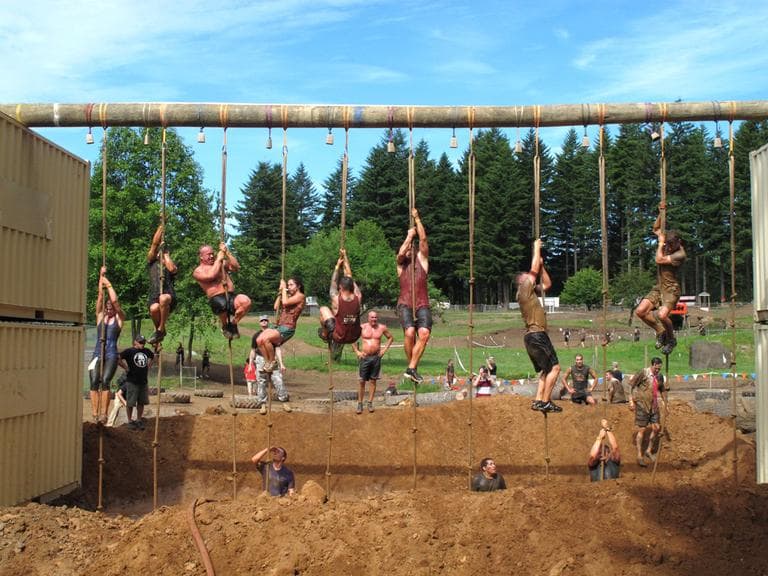Advertisement
Amateur Athletes Subject To Drug Testing
Resume
Sporting event organizers have started drug-testing some amateur athletes, even weekend warriors in charity running events, according to Outside magazine. One competitor who'd raced in hundreds of amateur and semi-pro cycling events in Florida over the past 14 years was asked for the first time ever to take a drug test after a recent third-place finish. Her reaction? "You've got to be kidding me!"
Journalist and amateur cyclist Ian Dille finds doping is not uncommon at the amateur level, but drug testing is turning off some competitors.
"It’s a bit of a road block for an amateur competitor who just wants to compete for fun and doesn't really want to have to deal with thinking about if they might turn up positive in a drug test," Dille told Here & Now's Robin Young.
He wonders whether it is fair, or even possible, to hold amateurs to the same stringent standards as the pros. And he tells Robin that those amateurs who do choose to participate in events can report competitors they suspect are using performance-enhancing drugs, to the U.S. Anti-Doping Agency.
Interview Highlights
By Signing Up, Athletes Agree To Rules
"The problem is a lot of amateur athletes aren't aware of that. So, someone like Morse Hill has competed nationally, she’s never been asked to take a drug test, she’s never fully familiarized herself with the World Anti-Doping Agency code that lists all the banned substances an athlete needs to be aware of. She could have taken an allergy medication or something completely unintended to improve her performance."
Energy Drinks As Banned Substances?
"Some of them have stimulants in them that are on the banned substance list. In fact, a Masters athlete, Julio Cruz, was recently suspended after taking a test in Florida that was funded by the Clean Ride Fund. He’s a 43-year-old Masters racer that took a supplement that had a banned stimulant in it and he’s now facing a six-month suspension."
Two Sides Of A Debate
"On the one hand, you have people saying that this emphasis on drug testing lower-level athletes is going to turn them off the sport. They’re not going to want to go to their local races because they don’t want to have to deal with the headache of worrying about unintentionally ingesting a banned substance. On the other hand, it’s turning some athletes off because they want to win a race or compete in a race where they’re not worried about what another athlete is doing to try to beat them or perform better than them."
A "Win At All Costs" Culture
"I get enjoyment out of the sport whether I win or lose. I think the sad part is that obviously other people, even people that aren't doing this professionally, don’t have that appreciation of the sport and feel like they need to take performance enhancing drugs to win. And it’s something that becomes somewhat invasive, this “win at all costs” culture."
Reporting Athletes As "Suspicious"
"It’s not certain that they’re going to get tested, but the point is if athletes are being tested regularly then we can all feel like we’re all competing on more of a level playing field or based on our natural ability. The thing is, there’s a lot of accusations but it’s hard to really know. Athletes can beat tests unless you have eyewitness evidence. So there’s always a little bit of a gray area and wiggle room, which I suppose adds to the frustration."
Guest:
- Ian Dille, journalist and amateur cyclist
This segment aired on October 12, 2012.